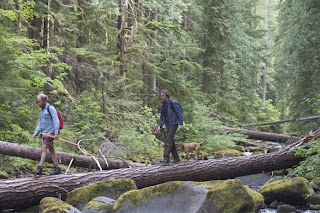 [Partial interruption of my 2008 movie countdown to add another entry to my "10 Films that Make Me a Casual Film Snob" series]
[Partial interruption of my 2008 movie countdown to add another entry to my "10 Films that Make Me a Casual Film Snob" series]I have revealed to a few close confidants that my most hated movie of all time is Armageddon. That movie had the temerity to mix scenes of absolute devastation, edited at a breakneck speed, with the most contrived emotional scenes. Every frame of that movie gives you context for the standards by which I judge cinema. I want my movies to trust my sense of art and patience. Let moments of tragedy and cruelty linger as long or as short as necessary to make the most effective emotional impact. And, pretty please, if you’re going to make a big explosive cartoon of a movie, make the characters fantastic or unreal to fit the style. On the flipside, if you want real human beings to express themselves on the screen, whether in a lonely woods or in a spaceship in outerspace, make the movie’s pacing and style fit your desire for the audience to identify with these characters.
Old Joy is a unique movie because it follows this standard on which I decided I should judge films, and dares me to keep that standard on a type of movie that is the polar opposite of anything remotely like the big obnoxious blockbuster. It’s a movie that barely exists, but what is shown is appropriate to the situation. It moves like a slow stream, and in fact the only brash element in this movie is the blaring of right-wing talk radio as the only two main characters in the movie (and a dog) head into the wilderness.
The movie involves two old friends in their late twenties, one married and one kind of a loner, who go on an overnight hiking trip to a secluded freshwater spring. And that’s about it. The movie quietly follows this trip they take, and no dialogue or interaction is wasted in any way that doesn’t make you question the authenticity of these people. You’re mostly left to guess about their past, and it seems like most of the larger battles that come with the development of any deep friendship have already occurred. It’s only at one hinting moment, which in the broadest of interpretations could be the “climax” of the film, that opens up interesting questions. Or it just as easily could be nothing major or revelatory.
From the previews I watched online, Old Joy looked quite unspectacular, but I didn’t expect its urgency to barely rise above the level of a cricket chirp or a bubbling spring. But I still enjoyed it because of the ability of the filmmaker to think small and keep everything understated. I’ve had difficulty coming to terms with other low-budget low-key movies like this, that seem to putter around and offer interesting images but no mood or setting to shape your expectations and interpretations. But this film works because it settles into a natural pace so effortlessly, and is compelling in how it flows as normally as life would unfold on your most mundane of days. With attention to background noise and mood as much as dialogue, the film reminds me of the clarity of mind that comes with the belief that most of life is background noise, with the occasional pivotal moment bubbling up to the surface. Movies have trouble with this understatement since there’s always a need for them to say something and be very in-your-face about it. Old Joy allows me to appreciate a whole set of films where there is nothing obvious to conclude or even remember once the credits roll. In fact, that open inconclusiveness is entirely the point.
No comments:
Post a Comment